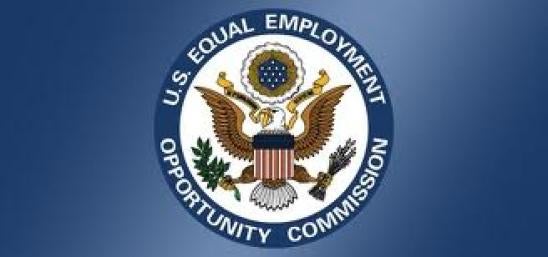On December 16, 2020, just days after the first doses of COVID-19 were administered in the United States, the Equal Employment Opportunity Commission (EEOC) issued updated guidance providing employers with critical information regarding the intersections of mandated employee COVID vaccinations and federal employment laws. This guidance confirms the EEOC’s position that employers are permitted to require employees to receive a COVID-19 vaccination, subject to legal protections related to disabilities, sincerely held religious beliefs, and genetic information.
Employee Disability Exceptions:
Some employees may not be medically able to receive a COVID vaccine due to a disability. The Americans With Disabilities Act (ADA) allows employers to impose a qualification standard ensuring that “an individual shall not pose a direct threat to the health or safety of individuals in the workplace”; however, before an employer can use this requirement to prohibit employees from entering the workplace where those employees claim they cannot be vaccinated due to a disability, that employer must establish that an unvaccinated employee would indeed pose a “direct threat” to the health and safety of other employees “that cannot be eliminated or reduced by reasonable accommodation.” Consequently, the EEOC advises employers to conduct an individualized assessment accounting for the following four factors: “the duration of the risk; the nature and severity of the potential harm; the likelihood that the potential harm will occur; and the imminence of the potential harm.”
If the employer concludes that the unvaccinated employee presents a direct threat to others in the workplace, the employer still cannot immediately exclude the employee from the workplace without first determining whether there is a reasonable accommodation that will eliminate or reduce the risk. Even where the employee cannot be reasonably accommodated, the ability to exclude that employee from the workplace does not necessarily permit the employer to terminate his/her employment. Instead, the employer must consider other options, like remote working. The EEOC encourages employers to engage employees “in a flexible, interactive process to identify workplace accommodation options,” particularly to avoid ADA or Title VII implications.
Religious Objections:
Mandatory vaccination may also implicate religious beliefs and trigger protections under Title VII of the Civil Rights Act of 1964 (Title VII). If an employee refuses to receive a vaccination based on a sincerely held religious belief, the guidance states that employers must provide a reasonable accommodation unless it would pose an “undue hardship” on the employer. The EEOC advises that employers should “ordinarily assume” that religious accommodation requests are based on sincerely held religious beliefs. If an employer has an “objective basis” to question either the religious nature or sincerity of the belief asserted by the employee, the employer may request additional supporting information.
Vaccinations are Not Medical Examinations, But Pre-Screening Questions Might Be:
The EEOC guidance states that the “vaccination itself is not a medical examination” within the meaning of the ADA, but that “pre-screening vaccination questions may implicate the ADA’s provision on disability-related inquiries; i.e., inquiries likely to elicit information about a disability.” Accordingly, if an employer administers the vaccine, it must ensure that pre-screening questions posed to employees are “job-related and consistent with business necessity,” meaning an employer must have a reasonable belief, supported by objective evidence, that an employee who does not participate in the pre-screening, and consequently does not receive a vaccination, “will pose a direct threat to the health or safety of her or himself or others.” If the vaccination program is voluntary or administered by a third party that does not have a contract with the employer, such as a clinic or pharmacy, the ADA business necessity restriction would not apply to pre-screening questions.
Requiring Proof of Vaccination:
Another important consideration for employers is obtaining proof of vaccination. The EEOC guidance states that employers are permitted to ask employees to show proof of COVID-19 vaccination without running afoul of the ADA, confirming this sort of inquiry would not be disability-related.
Genetic Information Nondiscrimination Act (GINA) Considerations:
The guidance also addresses issues related to GINA; a statute often overlooked by employers. The guidance states that administering a COVID-19 vaccine and requiring proof of vaccination do not implicate GINA, but pre-screening questions can if they elicit genetic information, including questions regarding the immune systems of family members. Accordingly, if pre-screening questions unavoidably include questions about genetic information, the EEOC suggests that employers consider requesting proof of vaccination in lieu of administering the vaccination themselves. In this scenario, the employer should warn employees not to provide genetic information as part of their proof of vaccination.
Takeaways: The EEOC’s guidance provides timely clarification for employers considering employee vaccination options. The key takeaway is that employers can offer COVID vaccinations to employees on a mandatory or voluntary basis subject to limitations contained in the same federal employment laws that govern nearly every other aspect of the employment relationship, and employers are reminded to carefully assess the full range of legal issues prior to implementing a vaccination policy or plan.






 i
i


